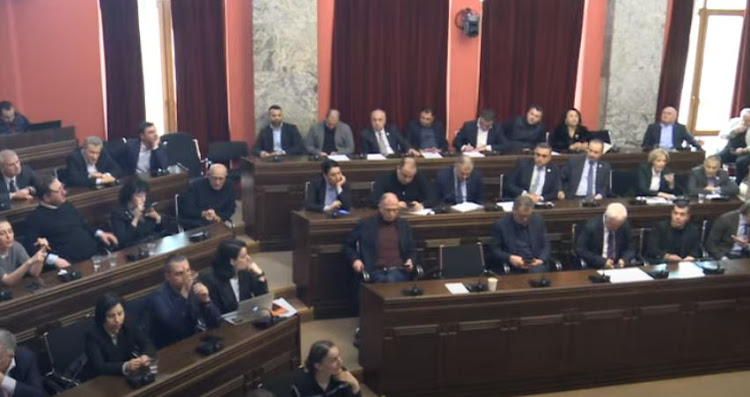TBILISI, (Reuters) – Lawmakers in Georgia engaged in fistfights today as a parliamentary committee debated a controversial law that would regulate “foreign agents” which critics say is modelled on draconian legislation in neighbouring Russia.
Video from inside the parliament building in Tbilisi, the Georgian capital, showed a brief but violent brawl between lawmakers after the chairman of the chamber’s legal affairs committee appeared to strike the leader of the United National Movement opposition party, which opposes the law.
The governing Georgian Dream bloc last month announced that it supported the legislation, which still needs to pass other approval stages before it can become law.
The law would require organisations receiving more than 20% of their funding from overseas to register as “foreign agents”, and submit to monitoring by the justice ministry, or face hefty fines.
Critics have compared it to a 2012 Russian law, which has been steadily expanded since and used to crack down on Russia’s civil society and independent media. They have cast the law as symbolic of an authoritarian shift in Georgia.
Irakli Pavlenishvili, a civil rights activist and opposition politician said: “The Russian legislation that now is proposed in parliament is against Georgia’s national interests, against our European aspirations”.
“The whole international community and Georgian community is agreed on this topic”.
Independent Caucasus news site OC-Media quoted Irakli Beraia, a lawmaker from the ruling Georgian Dream party, calling opponents of the law “spies”. The party says it remains committed to one day joining the European Union.
Georgian President Salome Zourabichvili has said she will veto the law, which she has said will endanger Georgia’s hopes of joining the European Union and NATO. Parliament can override a presidential veto.
Last month, more than 60 civil society organisations and media outlets said they would not comply with the legislation if it becomes law.

